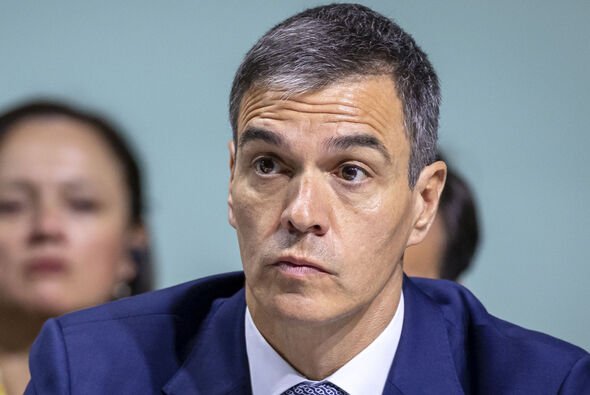Tensions between China and the European Union have reached a fever pitch as China retaliates against EU tariffs on Chinese electric vehicles with an investigation into European pork imports worth £2.5 billion.
The move has sparked concerns of a potential trade war between the two economic giants.
China’s Commerce Ministry announced on Monday that it will launch an anti-dumping probe into European pork, covering a range of products including fresh and frozen meat.
While not directly linking this action to the EU’s decision on electric vehicle tariffs, many see it as a retaliatory move and a strategic manoeuvre in ongoing trade negotiations.
The European Commission has responded cautiously, emphasising that EU farm subsidies comply with international trade rules. Olof Gill, the Commission’s trade spokesperson, assured that they would closely monitor China’s investigation to ensure it conforms to WTO regulations.
The rift began when the EU unveiled plans to impose provisional tariffs on Chinese-made electric vehicles, citing concerns over unfair subsidies.
These tariffs, set to begin on July 4th, are expected to range between 17.4% and 38.1% and will impact various automakers, including Tesla.
In Spain, a major player in the global pork market, concerns are high.
Economy and Trade Minister Carlos Cuerpo reassured stakeholders of Spain’s commitment to finding a resolution through EU channels, emphasising the importance of avoiding a damaging trade dispute.
He said: “Just as there can’t be a trade war, there can’t be a subsidy race either.
“We are already working through the European Union to find solutions that will provide a way forward without damaging the sector.”
The Spanish pork exporter association, Interporc, echoed these sentiments, advocating for dialogue between the EU and China to resolve the issue without jeopardising the sector.
They said: “The pork sector advocates for a trade understanding between the EU and China.
“There is plenty of time for the EU and China to reach agreements.”
With China’s investigation potentially lasting up to a year, there remains optimism that diplomatic efforts could lead to a mutually beneficial agreement.
